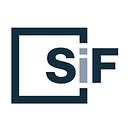Ecosystem Spotlight: Operate
Q&A with Carey Ransom, Founder & President of Operate

Carey Ransom is the Founder and President of Operate, a venture studio that invests in and helps founders build high-growth software companies. After 20 years of starting, leading and growing multiple companies, Carey and his team now partner with founders to produce winning companies through their studio in Southern California. With a combination of collaboration, coaching, community and capital, Operate helps founders focus on the key things that matter and in their areas of genius, while supplementing the team in the other areas of need. Together the companies are faster, stronger and more predictably successful, which is great for everyone involved, including investors.
Tell us a little bit about Operate Venture Studio and the organization’s hands-on philosophy as it relates to co-creation and supporting its portfolio companies?
When I think about running a company, I don’t just see myself as an operator, but really as a company builder. In my experience, having played almost every role imaginable throughout my career — and learning to tackle whatever was necessary get the job done — has given me the proper understanding to help guide Operate’s portfolio companies to build successful ventures and has essentially been the inspiration for Operate’s hands-on approach.
In the early stages of an idea, as a founder figures out how to validate a product or service and turn it into a business, there are a lot of things that have to get done; and we work super closely with these founders from the start to figure out what that prioritization looks like.
We begin by identifying the founder’s “area of genius” — whether that’s distribution strategy or product building — use that to our advantage by putting the founder in the driver’s seat for that department — then reverse engineer to methodically backfill the other priority tasks. What helps us be successful in this case is gauging, from the outside, what are the most important elements and capabilities that need to be addressed within this group at that particular stage and then figuring out the best way to approach it.
From a co-creation standpoint, Operate can bring a lot more capability and resources than what most founders know or can typically afford at the particular stage we work with — especially given our diverse team. Our people have deep startup experience, which means they can come in, assess the situation and very quickly add value because that’s how they’re wired to think and act. From a time standpoint, we’re also more capital efficient from both the time and likelihood of success.
At the end of the day, our goal is to produce winning formulas much more frequently, as we solve for speed, quality and consistency, by offering experts that can complement a founder’s area of genius with their own experience and skills.
Your background is super impressive, having held top senior positions at various startup companies, across the C-suite from CEO to COO and CMO. In what ways did your experience guide you to start Operate, and how does it influence the way you work with the c-level executives within your portfolio companies?
What I’ve learned from my previous positions operating across the C-suite is that it all comes down to dividing and conquering. Whatever my title was, my mindset has always been how can we get the most important things done efficiently, even as a as a small team. In that case, I was in charge of identifying what are the things that need to get accomplished, and who’s the best person of the group of people we have here right now to take that on.
This is the same mindset we apply with our portfolio companies. In many cases and in the earliest stages, we tend to get in really early and be as transparent as possible with our founders. Typically, at that stage, it’s all about survival, and that means we always pull in the best person to tackle the most critical and time sensitive project at each moment.
Sometimes, that may even mean I am stepping in to take on some of those CEO duties early on — whether I’m the person talking to the capital markets if we need to bring in co-investors or helping with recruiting from our network — because we collectively decide that’s the best use of my time for this company at this particular stage.
Being able to properly guide our portfolio founders and say, “this is where you want to go, this is how we will get you there together,” will always be our biggest value proposition.
Has the global pandemic affected or perhaps enhanced the venture studio ecosystem in any way, and if so, how?
We are big believers in high frequency collaboration, and unfortunately, I don’t know if it’s possible to have as good of collaboration virtually as in-person. I’ve always said that if you have the opportunity and choice, all things being equal, in-person is always better. We would typically defer to that approach to the extent we could before COVID-19. However, I strongly believe this pandemic has caused all of us to think creatively and find ways to do as best we can in a virtual environment.
This environment has also highlighted the importance of experience and support in the early, formative stages of a company, and we’ve seen founders seeking out a studio like ours to supplement the missing connections they crave. So many things are in flux right now and having a partner like a venture studio can be a steady hand that builds ecosystem and community support in by design. We’ve served as emotional support and a consistent outlet for key needs that founders have.
My other observation from the pandemic is that it’s further opened our minds to potentially working with people — whether that’s founders or even teammates — who aren’t physically near or around us but still have the same philosophical and cultural alignment.
Looking out a few years from now, I think the venture studio model will look like a hybrid situation we’ll encounter in many offices. We’ll have bursts or sprints where we are together, and then we’re OK with not being together every day as we move forward. This scenario makes it possible for us in a studio to work with partners from all over the world, as we ramp up an idea with then and then continue to support as needed on an ongoing basis in a more remote or hybrid manner.
In a recent company blog post, your organization describes the various challenges many startups face in the initial growing stages (e.g. access to the right talent and the inability to identify the appropriate market needs) and the subsequent solutions that a venture studio, like Operate, can bring to the table. If we dive deeper into this topic, what is it about the venture studio model that helps mitigate many of the pain points startups confront regularly, and why should we view venture studios as the future of company building?
If you are a first-time founder or in an area outside of one of the startup hotbeds, like Silicon Valley, and you’re trying to figure out how to solve some of the critical parts of your business, working with a studio that is doing so much of that early stage work on a daily basis can create a lot of efficiencies for any entrepreneur.
On the community side of it, you have a group of people that are just broadly capable of rapidly assembling working well together in support of a unifying idea or mission, and they understand that in getting through those first couple of early stages of success is going to create a ton of value for a company. When you’re working with a studio, I think you’re ultimately setting up your company to be an easier entity to recruit people into by getting the foundation set in the right way and marketing a much more stable and validated startup to talent in the market.
What is your personal perspective on how our industry can expect corporations and venture studios to work closer together in the near future and, more specifically, how they both can help support the development of their local ecosystems?
I’ve seen some amount of activity between these two entities. When it comes to a corporation building its own venture studio, I would argue that as long as the organization has a commitment to create a funnel in which they plan to take new ideas and work them through a process and fully commit to creating multiple companies or products on a regular cadence, the internal studio model would make sense.
For those corporates that are looking for an external team to help bring speed and efficiency to innovation (what I would argue is sometimes the antithesis of the corporate environment), this is where partnerships between a corporate and a venture studio are well worth it.
I say this because part of what can sometimes hold innovation back within corporations are the cultural challenges and certain internal incentive issues that you see often. For example, employees may sometimes wonder, ‘if we succeed on this project, I don’t really get a lot from it; but if we fail, I could lose my job, so therefore I won’t start it.’ In this case, working with an external venture studio is certainly a safer and simpler jumping off point for a company that wants to think about creating some new products, new ventures or new units in a more efficient and perhaps more incentivized way.
As more venture studios emerge, I believe they will naturally lock in partnerships with large companies or even a consortium of a few companies in a specific geography or industry; and to me, it’s exciting to find where those connection points can potentially appear.
